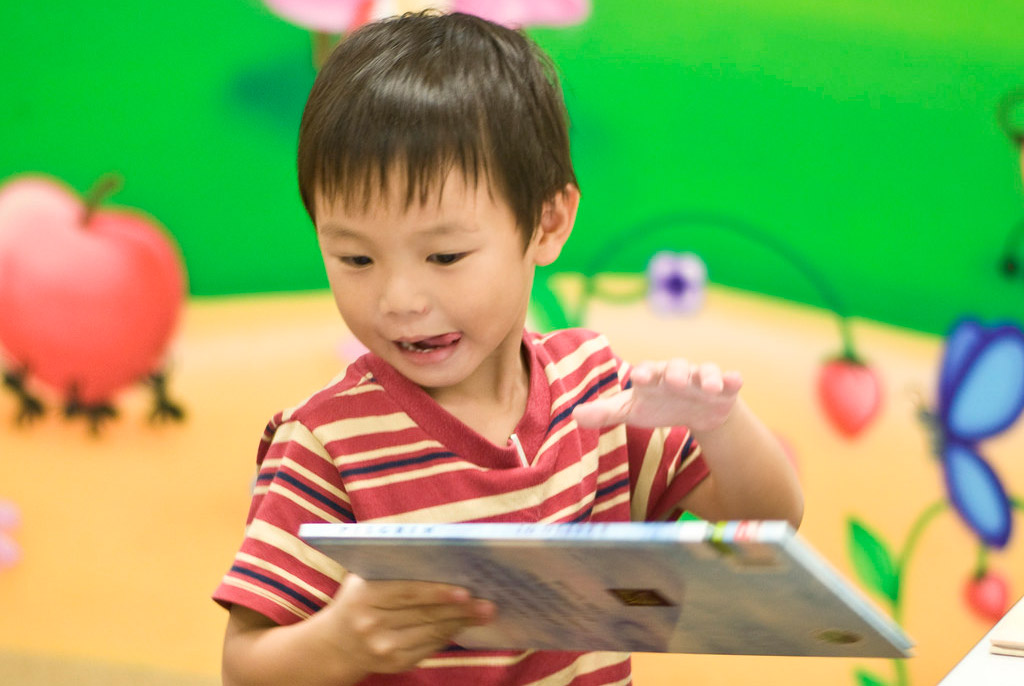Loads of parents in Singapore brave a variety of tests when raising and teaching their little ones. It’s not an easy task for children to learn the Chinese language in this technology-laden era we are in at the moment. Kids these days are getting exposed to media at a younger age, and they are bombarded with a wide range of content. Unfortunately, the majority of content is in English. While children are increasingly getting more familiar with the English language, they have comparably little knowledge or understanding of the Chinese language.
Reasons Singaporean kids have difficulty learning Chinese
-
Lack of exposure
English is Singapore’s official national language, so no doubt your child may have grown up speaking and listening to English more than Chinese. And chances are your kid is more likely to interact with their friends in English as well. The Chinese language holds a relatively small part in the curriculum too, which reduces their chances of discovering the language further. When kids are not acquainted with the language with reasonable intensity and duration, we can’t blame them for being hesitant to embrace it fully.
-
The language is overwhelming
Hanyu pinyin (the famous four tones), handwriting (complicating scribbles), pronunciation … Chinese is an old language, and over the course of many centuries, a lot of terms and phrases have evolved to become what we know today. The longer its history, the more complicated it is! In addition to the mentioned areas of the language, let’s not forget the crazy amount of vocabulary that even adults have trouble learning and memorizing! Fun fact: there are nearly 100,000 Chinese characters and the average Chinese person can read about 5000 to 8000 of them.
-
The language makes no sense
As long-term speakers, you may not have stopped to ponder over the Chinese language. We are so used to it that sentence structure, grammar and terms come instinctively to us. However, for any early learners, they may have possibly spotted oddities that are hard to wrap their head around, which hinders greatly their learning process if without guidance.
As worrying as it sounds, there are ways to make a positive impact when it comes to developing your kid’s Chinese language skills. Before we delve into that, first remember not to stress out if you feel that your child does not have the ability to handle the Chinese language at his or her current stage. They are learning progressively and with some help from you, you will be bound to see improvements. More than just focusing on academic success, we listed out several methods that can kick start their Chinese language learning process!
What can parents do to help improve Chinese for K2 kids?
- Encourage them to interact and hold conversations with people around them in Chinese. Why not start with you? Get the ball rolling by finding opportunities during meal time, at bedtime or maybe when you are all buckled up in the car. It’s recommended to also set an example for your kids by speaking the language yourselves. Do be conscious about the use of the Chinese language though — try using proper and accurate terms and sentences as kids are known to imitate your speech. It’s helpful for them to mingle with friends who are stronger in the Chinese language as well — fun and learning always works well together!
- Expose your kid early to Primary 1 reading materials. Choose stories rather than textbooks, and read with them weekly. These books are useful to get them ready for what’s coming. Engage them further by asking “what do you think will happen next” during parts of the story. This will trigger them to think deeper and carry on the ideas of the story.
- Want them to undertake a bigger challenge? Let them switch roles and help them make their own book! It can be a weekly, or bi-weekly or monthly activity. Work with them together to think of the storyline, and hand them an old (but usable) camera or phone to snap photos that helps complete the story. After compilation, print a copy of the storybook and keep them as a collection!
- It’s normal that some kids learn much better visually. If your child prefers to learn visually, watch good Chinese materials together with your kids like TV shows, films, and news.
You might be unaware that your child is continuously improving, even when your kid is in his or her early stages of learning Chinese and you may not see a major step-up. Just remember, your kid has all the potential in the world to grow up fluent in the Chinese language — it’s up to the parents (and later with the help of his schools) to put in the extra effort for milestones like speech and language development.
Want your child to have fun Chinese lessons? Your kid will be in good hands with our native Chinese-speaking and well-trained educators who’re familiar with Singapore’s MOE syllabus. See how much fun your kid will have with our online lesson: Sign up for a free trial lesson






